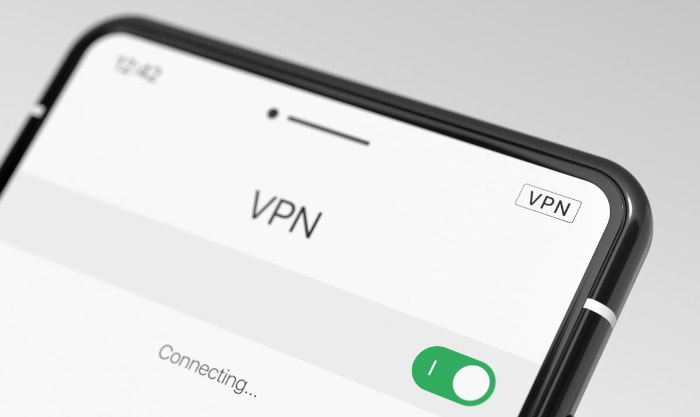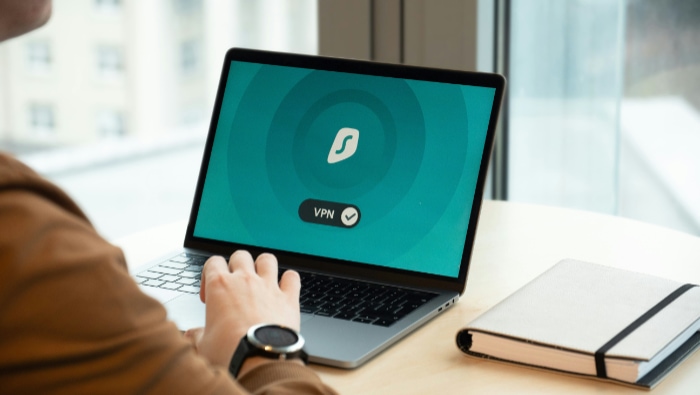How VPN Encryption Works: Behind the Secure Tunnel

Online security is no longer optional—it’s a necessity. As we send personal messages, share sensitive information, or shop online, our data becomes vulnerable to prying eyes. This is where VPN encryption steps in as a powerful shield, ensuring that your online activity stays private and protected.
By creating a secure, encrypted tunnel between your device and the internet, a VPN safeguards your data from hackers, surveillance, and even your internet service provider.
But how exactly does this encryption magic work? From transforming plain text into unreadable ciphertext to using advanced protocols for secure communication, VPN encryption forms the backbone of online privacy.
VPN Encryption: The Core Building Blocks
VPN encryption serves as the backbone of secure internet connections, ensuring that your private data remains protected from interception or misuse. By converting readable information into an unrecognizable code, encryption transforms your online activity into a secure stream of data.
The Basics of Encryption
At its simplest, encryption is the process of converting plain text—readable data—into ciphertext, which appears as a random string of characters. This transformation ensures that only authorized parties, equipped with the correct decryption key, can access the original information.
For example, if you send “Hello, World!” as plain text, it might be encrypted into ciphertext such as “9f1b3c79a8e4d6142b3f26e99a8f21dc” using an encryption algorithm like AES-256. Without the proper cryptographic key, this string of characters is completely meaningless to anyone attempting to intercept or read it.
Encryption begins with the generation of cryptographic keys, which are like digital locks and keys used to encode and decode messages. These keys must be carefully managed to ensure that no unauthorized access occurs.
The strength of encryption depends on the algorithms used. Popular encryption algorithms, such as AES (Advanced Encryption Standard), offer military-grade security by using complex mathematical functions to scramble data.
AES-256, a highly trusted standard, employs a 256-bit key, making it nearly impossible to crack through brute-force attempts. By deploying such advanced methods, VPNs ensure that even if someone intercepts your data, they cannot make sense of it without the decryption keys.
VPN Tunnel Creation
The concept of VPN tunneling revolves around creating a secure conduit through which data travels safely across the internet. This tunnel prevents unauthorized entities from spying on or tampering with your data while it’s in transit.
The process begins with an initial handshake, where the VPN client (your device) and the VPN server establish a secure connection. During this handshake, encryption protocols are negotiated, and keys are exchanged to lay the groundwork for secure communication.
Once the handshake is complete, a secure tunnel is established. This involves encapsulating your data packets, which means they are wrapped in additional layers of protection that make them unreadable to outsiders.
VPNs also use authentication protocols to confirm the identities of the client and the server, ensuring that neither side is compromised. Protocols like IKEv2 or SSL/TLS facilitate this process, adding another layer of confidence to the connection.
Data Flow Through VPN

The process of transferring data through a VPN involves a meticulously coordinated workflow that ensures your information remains secure from start to finish. Whether it’s data leaving your device or reaching its intended destination, encryption, encapsulation, and routing work together to protect your activity.
Client-Side Process
When you send data through a VPN, your device, commonly referred to as the client, plays a crucial role in preparing and securing the information. Initially, any data you wish to transmit is broken down into packets, which are smaller units of information designed for efficient transmission across the internet.
These packets are then encrypted using advanced algorithms, ensuring that anyone intercepting them cannot decipher their contents.
Once the data is encrypted, it undergoes encapsulation. This process wraps the encrypted packets in an additional header, creating a secure envelope for the data.
The encapsulation layer includes metadata, such as routing information, that helps guide the encrypted packet to its destination. The VPN protocol in use, such as OpenVPN or WireGuard, determines the specific method of encapsulation.
Before the packet leaves your device, the VPN software inserts a new header containing the source and destination IP addresses. Importantly, the original IP address of your device is masked and replaced by the VPN server's IP address.
This process ensures that your identity and location remain hidden while your encrypted data travels across public and private networks.
Server-Side Operations
When your encrypted data packet reaches the VPN server, it undergoes a series of critical operations to ensure it is properly processed and routed to its intended destination. The server first verifies the packet’s authenticity using the encryption keys shared during the initial handshake process.
This step ensures that the data truly originates from your device and has not been tampered with during transmission.
After verification, the server decrypts the packet using the appropriate keys. The decrypted information reveals the original data while removing the layer of encryption that shielded it during transit.
Once decrypted, the packet is checked for its intended destination, and the VPN server efficiently routes the information to its next stop on the internet.
If the packet is part of a request to access a website or online service, the VPN server forwards the request on your behalf using its own IP address. This process ensures that your real IP address remains hidden.
When the response from the requested website or service is received, the server reverses the workflow—it encrypts the data, encapsulates it, and sends it back to your device, where it is decrypted and displayed for you.
Encryption Protocols and Standards

Encryption protocols and methods are the foundation of VPN functionality, designed to ensure secure communication across public and private networks. A VPN relies on these protocols to create and maintain encrypted tunnels, while advanced encryption methods ensure that the data remains safe from unauthorized access.
Common VPN Protocols
VPN protocols define how data is transmitted between the client and the server, determining the speed, security, and reliability of the connection. Among the most popular protocols, each offers a unique combination of features tailored to various needs.
OpenVPN Architecture
OpenVPN is one of the most widely used VPN protocols, valued for its flexibility and high level of security. It operates on both the TCP and UDP transport layers, allowing users to prioritize reliability or speed depending on their preferences.
OpenVPN uses SSL/TLS for secure key exchange, ensuring that the encryption keys are transmitted safely between the client and the server. By supporting modern encryption standards such as AES-256, OpenVPN is an excellent choice for users prioritizing security without compromising performance.
IPSec Implementation
IPSec, or Internet Protocol Security, is a robust and versatile protocol suite designed to ensure secure communication over IP networks. It works by authenticating and encrypting each data packet during transmission.
Instead of being a single protocol, IPSec functions as a suite comprising two main components: Authentication Header (AH) and Encapsulating Security Payload (ESP). While AH verifies the data's authenticity, ESP encrypts its content for maximum security.
IPSec is often paired with protocols like L2TP or IKEv2 to enhance both security and performance.
WireGuard Technology
WireGuard is a modern VPN protocol that emphasizes simplicity, efficiency, and cutting-edge cryptography. Unlike older protocols, which can be complex and resource-intensive, WireGuard is lightweight and streamlined, making it highly efficient in maintaining fast yet secure connections.
It uses state-of-the-art cryptographic algorithms, such as ChaCha20, to encrypt data while keeping resource usage minimal. WireGuard’s simple codebase also makes it easier to audit, reducing the likelihood of hidden vulnerabilities.
Due to its speed and security, it is becoming a popular choice for both personal and enterprise VPN use.
Encryption Methods
While VPN protocols define the framework for communication, the encryption methods applied within these protocols are what make the data inaccessible to anyone without the proper decryption key. Encryption methods are used to encode information and determine how securely it is protected during transmission.
Symmetric Encryption Usage
Symmetric encryption relies on a single shared key to both encrypt and decrypt data. This method is highly efficient and is often used to encrypt large amounts of data quickly.
AES (Advanced Encryption Standard) is a common symmetric encryption algorithm used by VPNs due to its strength and speed. With AES-256, for example, the 256-bit key provides a vast number of possible combinations, making it virtually impossible to crack through brute force.
Asymmetric Key Pairs
Unlike symmetric encryption, asymmetric encryption uses two keys: a public key for encryption and a private key for decryption. This method ensures that even if someone intercepts the public key, they cannot decrypt the data without the matching private key.
VPNs typically use asymmetric encryption during the initial handshake, where the client and server establish secure communication by exchanging encryption keys. Using protocols like SSL/TLS, this process protects the key exchange itself, ensuring no unauthorized third parties can intercept the data.
Perfect Forward Secrecy
Perfect Forward Secrecy (PFS) is an important feature in modern encryption methods, guaranteeing that even if one encryption key is compromised, past communication remains secure. PFS achieves this by generating a unique session key for each connection, which is discarded after the session ends.
This means that even if a hacker gains access to a private key, they cannot use it to decrypt previous sessions. VPNs use PFS to ensure that user data remains secure, no matter how long the communication lasts or what vulnerabilities may arise in the future.
Security Implementation

A VPN's primary purpose is to safeguard your online activity with robust security mechanisms that shield your data from unauthorized access.
To achieve this, VPNs use advanced authentication methods to verify the identities of both clients and servers, along with sophisticated protection features designed to prevent any potential breaches.
Authentication Mechanisms
Authentication is the process of verifying that both the client (your device) and the VPN server are legitimate participants in the connection. Without proper authentication, there’s a risk of interacting with malicious servers or impostors posing as trusted endpoints.
VPNs address this through multiple layers of authentication methods.
Digital Certificates
Digital certificates are like online passports that validate the identity of a VPN server. Issued by trusted Certificate Authorities (CAs), these certificates provide assurance that the server is genuine and authorized to handle data transmission.
During the initial handshake process, the VPN client checks the server’s certificate against the CA’s records. If the certificate is valid, the connection proceeds; if not, the client terminates the session to prevent potential risks.
Key Exchange Methods
Key exchange refers to the process of securely sharing encryption keys between the client and server. This step is critical because it sets the foundation for encrypting and decrypting all future communication.
VPNs often use Diffie-Hellman or Elliptic Curve Diffie-Hellman (ECDH) for key exchange, ensuring that the keys are shared over a secure channel without exposing them to eavesdroppers. These methods are designed to prevent attackers from intercepting or reconstructing the keys, even if they can observe the exchange.
Identity Verification
To ensure that only authorized users can access the VPN, identity verification mechanisms are often used. These include username and password combinations, multi-factor authentication (MFA), or biometric measures like fingerprint or facial recognition.
Multi-factor authentication, in particular, adds an extra layer of security by requiring a secondary form of verification, such as a code sent to your phone, making it much harder for attackers to gain access.
Data Protection Features
Beyond ensuring secure authentication, VPNs employ additional features to prevent data leaks and protect your online activity, even in unexpected scenarios. These features work silently in the background to provide a seamless and secure experience.
Kill Switch Functionality
A kill switch is an essential safety feature designed to protect your data if the VPN connection unexpectedly drops. When activated, the kill switch immediately severs your device's connection to the internet, preventing unencrypted traffic from being exposed.
Without this feature, your device could revert to using your regular, unsecured internet connection, making your activity visible to external parties like hackers or internet service providers.
DNS Leak Prevention
DNS leaks occur when your device bypasses the encrypted VPN tunnel and sends DNS requests (which are responsible for translating website names into IP addresses) through your regular internet connection. This can expose your browsing activity to your internet service provider or other entities monitoring your DNS traffic.
DNS leak prevention ensures that all such requests are routed exclusively through the VPN's secure servers, maintaining the confidentiality of the websites you visit.
Split Tunneling
Split tunneling allows you to choose which traffic passes through the VPN and which remains on your regular internet connection. This feature is especially useful when you want to optimize bandwidth or access local services that might block VPN traffic, such as streaming platforms or online banking.
For example, you might route sensitive activities like file sharing through the VPN while letting less critical tasks, like watching a local video, use your regular connection. This selective approach balances security and convenience, giving you greater control over your online experience.
How VPNs Are Used in Everyday Life

VPNs are more than just tools for enhancing online security. They serve as practical solutions to many challenges faced in our modern connected society.
Their versatility makes them invaluable for protecting networks and safeguarding personal privacy.
Network Security
VPNs play a significant role in securing networks against external threats, particularly in environments where data transmission is vulnerable.
Whether you're a casual internet user connecting to public WiFi or a corporation enabling remote access for employees, VPNs provide an effective solution to mitigate risks and enhance overall security.
Public WiFi Protection
Public WiFi networks, while convenient, often lack the security needed to protect your data from cyber threats like hackers or eavesdroppers. When you connect to a public hotspot at a café, airport, or hotel, your device can become an easy target for man-in-the-middle attacks.
A VPN mitigates this risk by encrypting your internet traffic, ensuring that even if someone intercepts your data, they cannot read or misuse it.
Remote Access Security
For remote workers or those accessing sensitive company resources from off-site locations, VPNs are a crucial tool for maintaining security. They allow employees to securely connect to their organization's internal network from anywhere in the world.
By encrypting their connection, VPNs prevent sensitive information, such as login credentials or customer data, from falling into the wrong hands. Many businesses rely on VPNs to support flexible work environments without compromising their internal systems.
Corporate VPN Usage
In corporate settings, VPNs are used to ensure that all company data remains private, even when transmitted across public networks. Employees working in different offices or traveling abroad can use a corporate VPN to securely share files, communicate, or access internal applications.
Additionally, businesses can configure VPNs to restrict access to specific intranet resources, ensuring that only authorized personnel can reach sensitive information. This centralized control reduces the risk of data breaches and strengthens organizational security.
Privacy Protection
Beyond securing networks, VPNs are powerful tools for protecting personal privacy. They shield your online activity from surveillance, advertisements, and trackers, allowing you to browse and interact with the web more freely.
IP Address Masking
Your IP address acts like your digital home address, revealing your approximate location and identity to the websites you visit or services you use. A VPN masks your real IP address and replaces it with the IP address of the VPN server you’re connected to.
This not only hides your identity but also makes it difficult for websites, advertisers, or malicious actors to track your online behavior.
Geolocation Handling
VPNs allow you to virtually change your location by connecting to servers in different countries. This feature is particularly useful for accessing content that might be restricted or unavailable in your region.
For example, if a streaming platform offers exclusive shows in a specific country, a VPN can grant you access by routing your connection through a server based there.
Traffic Encryption
Encrypting your internet traffic ensures that your online behavior cannot be monitored or intercepted by third parties, including internet service providers (ISPs). Without encryption, ISPs may log your browsing history or throttle certain types of traffic, such as streaming or torrenting.
A VPN prevents this by encrypting all data sent from your device, making it unreadable to anyone attempting to monitor your activity. This level of encryption not only protects sensitive information, like banking details, but also preserves your right to browse privately.
Conclusion
Encryption plays a critical role in VPN security, transforming sensitive information into unreadable code and ensuring that every piece of data transmitted is safeguarded against external threats. By utilizing advanced protocols and encryption methods, VPNs create secure tunnels that protect users from hackers, surveillance, and data leaks.
This meticulous approach to encryption not only shields information but also preserves privacy, giving users the confidence to navigate the internet freely and securely.
As the internet becomes increasingly central to our daily lives, protecting online privacy has never been more important. VPNs offer a robust solution to modern cybersecurity challenges, securing public WiFi connections, masking identities, and enabling unrestricted access to global content.
Their ability to keep data private while adapting to various use cases highlights their value as an essential tool for safe and private digital interactions.


